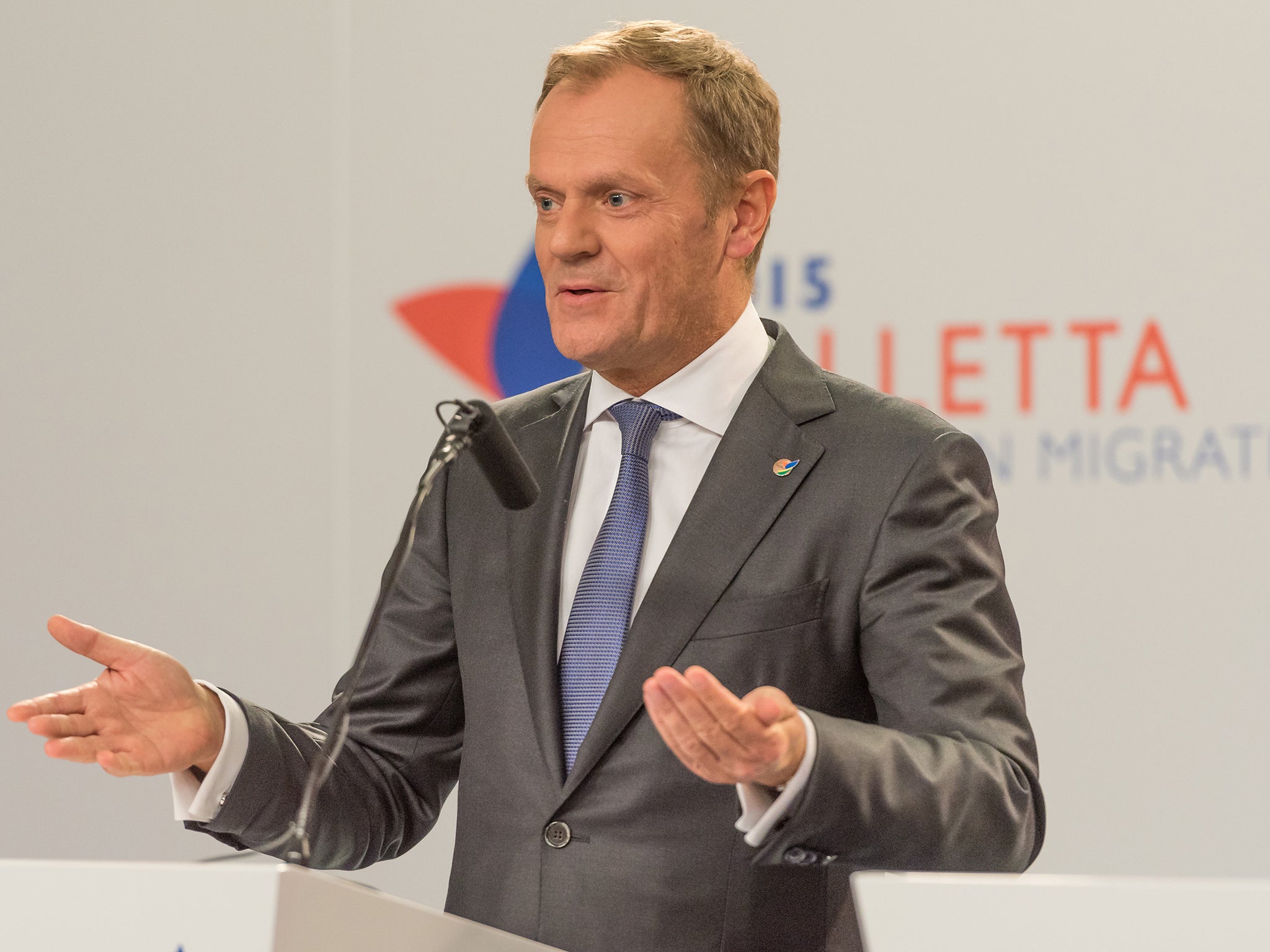EU referendum: David Cameron's hopes of swift renegotiation dashed by Donald Tusk
European Council President warns reaching a deal by next month, as the PM had hoped, will be 'very tough'

David Cameron’s hopes of wrapping up his European Union renegotiation by next month were called into question last night after European Council President Donald Tusk warned that reaching a deal would be “very tough”.
The Prime Minister has set his sights on securing an agreement on EU reforms within the next few weeks, so that they can be signed off by leaders at the next EU summit in Brussels, on 17-18 December. However, Mr Tusk, who chairs the summits, poured cold water on the idea. “I have to say that it will be really difficult to find an agreement,” Mr Tusk said, adding that the process of negotiating with London “is a very, very tough game,” and that there was “no guarantee” of a deal in December.
Mr Tusk will oversee the negotiations, which start next week with consultations with other European leaders on how far they are ready to accept Mr Cameron’s demands. Mr Cameron wants to hammer out a new deal for Britain before putting continued EU membership to a referendum before the end of 2017. Although the Prime Minister is keen to hold the referendum as early as possible – some reports suggest he is aiming for next June – his timetable could be affected by other EU events. Officials warn that the December summit is already looking crowded, with the UK renegotiation likely to vie for the leaders’ attention with other issues such as the refugee crisis and the EU sanctions on Russia.
Mr Cameron unveiled his reform demands on Tuesday in a speech, and in a letter to Mr Tusk, outlining four main aims: safeguarding the needs of non-euro countries; cutting red tape; exempting Britain from the EU treaty commitment to “ever-closer union”; and restricting EU migrants’ access to in-work benefits.
Mr Tusk was speaking in Malta after a summit of EU leaders on migration, from which Mr Cameron was absent after returning to London to welcome the Indian Prime Minister Narendra Modi. Mr Tusk also warned that unless the EU did more to stop the flow of refugees, the Schengen rules could collapse: “Saving Schengen is a race against time.”
Join our commenting forum
Join thought-provoking conversations, follow other Independent readers and see their replies
Comments
Bookmark popover
Removed from bookmarks